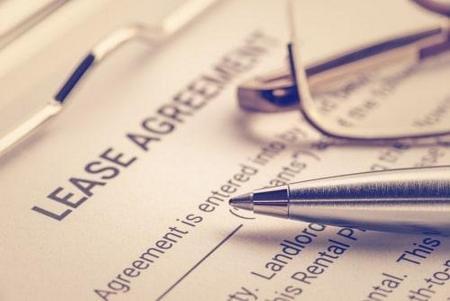1512 Artaius Parkway, Suite 300,
Libertyville, IL 60048
Call for a FREE Phone Consultation
847-549-0000
Video Consultations Also Available
 Spanish
SpanishServing Clients Across 7 Illinois Locations
Should Landlords Consider Lease Modifications Because of COVID-19?
 The coronavirus pandemic has had a massive impact on the economy of the United States, affecting both individuals and businesses. In many cases, job losses or requirements to close businesses or scale back operations have made it difficult or impossible for tenants to pay rent. This has put many landlords in a difficult position, especially since multiple states, including Illinois, have placed a moratorium on evictions. As landlords determine how they can recoup their investments in the property they own, they may be able to negotiate lease modifications with tenants. This can provide them with some protections and allow them to move forward with their business goals as the country continues to address the effects of COVID-19.
The coronavirus pandemic has had a massive impact on the economy of the United States, affecting both individuals and businesses. In many cases, job losses or requirements to close businesses or scale back operations have made it difficult or impossible for tenants to pay rent. This has put many landlords in a difficult position, especially since multiple states, including Illinois, have placed a moratorium on evictions. As landlords determine how they can recoup their investments in the property they own, they may be able to negotiate lease modifications with tenants. This can provide them with some protections and allow them to move forward with their business goals as the country continues to address the effects of COVID-19.
Rent Deferrals and Modifications to Lease Agreements
When tenants are struggling to pay rent, they may request concessions from a landlord that will decrease their financial obligations. These concessions may include the deferral of rent payments for a certain period of time or a temporary reduction in the amount to be paid. When negotiating a rent deferral, landlords will want to make sure both parties understand the amount of time that deferrals will last, how the deferred amount will be paid back, and whether interest will apply to the amount owed.
In return for making these types of concessions, landlords may make other modifications to a lease agreement, such as:
-
Modifying the tenant’s rights to extend the term of a lease, expand or improve the premises, or purchase the property.
-
Requiring a tenant to put down an additional security deposit.
-
Using liens to give a landlord a secured interest in the tenant’s property, allowing them to receive some repayment if the tenant is unable to meet their financial obligations following the rent deferral period.
-
Requiring a tenant to apply for government relief and use a portion of the funds obtained to repay the landlord for rent owed.
-
Allowing the tenant to sublet a portion of the premises to obtain additional income that can be used to pay rent.
Lease modifications may result in a new lease agreement being created, or a landlord and tenant may create a contract that defines the temporary or permanent adjustments that are being made. Landlords and tenants should fully understand the terms of these agreements, including their rights and obligations and the steps that can be taken if either party does not meet their requirements.
Contact Our Lake County Commercial Lease Lawyers
As a landlord, your options for collecting the payments that you are owed or enforcing the terms of a lease may be somewhat limited during the COVID-19 pandemic. However, you still have options, and the attorneys of Newland & Newland, LLP can help you determine the best approach to take when negotiating lease modifications with your tenants. To learn more about how we can help you protect your rights and financial interests, contact our Libertyville real estate attorneys at 847-549-0000 and schedule a free consultation.
Sources:
https://www.bakertilly.com/insights/understanding-lease-modifications-resulting-from-the
https://www.fasb.org/cs/Satellite?c=FASBContent_C&cid=1176174459740&d=Touch&pagename=FASB%2FFASBContent_C%2FGeneralContentDisplay
 Stop Foreclosure
Stop Foreclosure
















